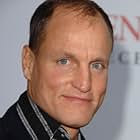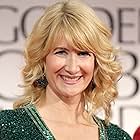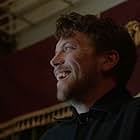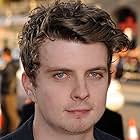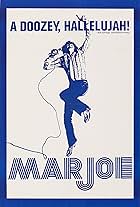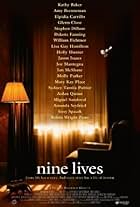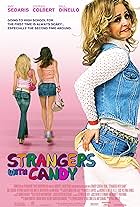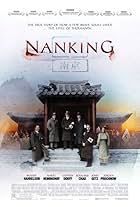VALUTAZIONE IMDb
7,2/10
8270
LA TUA VALUTAZIONE
Aggiungi una trama nella tua linguaIn order to support her ten children, Evelyn Ryan enters a commercial jingle-writing contest.In order to support her ten children, Evelyn Ryan enters a commercial jingle-writing contest.In order to support her ten children, Evelyn Ryan enters a commercial jingle-writing contest.
- Premi
- 1 vittoria e 1 candidatura
Trama
Lo sapevi?
- QuizSome of the dresses worn by Julianne Moore in the film belonged to the real-life Evelyn Ryan. Her children had saved them and offered the use of them for the film.
- BlooperRay the mailman is severely under dressed for that era, with short-sleeved shirt; he should have been similarly dressed like the milkman--jacket, tie, a hat very much like his.
- Citazioni
Evelyn Ryan: I don't need you to make me happy. I just need you to leave me alone when I am.
- Curiosità sui creditiBefore the ending credits roll, updates are given of all the children and of Ms. Schaefer along with their real life photos.
- Colonne sonoreSitting on Top of the World
Music by Ray Henderson
Lyrics by Sam Lewis and Joe Young
Performed by Woody Harrelson
Recensione in evidenza
Contesting, a trend popular in the 1950's and 60's, is now all but forgotten. Women across the country used their wit and wordplay to win thousands of dollars by writing slogans for companies to promote their products. Julianne Moore stars in "The Prize Winner of Defiance, Ohio," as Evelyn Ryan, one such contester who uses her talents to keep her family fed despite their abject poverty. The film co-stars Woody Harrelson as Evelyn's husband Kelly Ryan, a man struggling with alcoholism and his ill-begotten fate as a factory worker. Unlike most, Evelyn is not just an occasional contest winner. Her knack for jingle writer provides for her family of twelve and her winning is proportional to her families needs. Throughout the course of the film, her role as breadwinner creates friction between she and her husband, which Evelyn (Moore) manages with incredible grace and constant optimism. Indeed, Moore is radiant in this role and perfectly cast. Harrelson's performance is equally engaging and his moments of depression and rage are the ideal compliment to Moore's steady courage. Oscar Nominee Laura Dern gives an notable performance as a member of the Affadaisies, a group of contesting mothers which Evelyn befriends. Dern is quirky and lovable, despite her very small role.
"Prize Winner" is adapted from a book of the same name, a real life account of Evelyn Ryan's life. The book is authored by Ryan's daughter Terry, who appears in the film and is also re-incarnated as her younger self in the character Tuff, played with strength by Ellary Porterfield who makes her feature film debut. Terry Ryan admits thats her book's "intent was to bring her mother back to life..." and certainly the film is also a vehicle for this. Thankfully, and unexpectedly, the movie does not suffer from over sentimentalization, thanks to brilliant script adaptation and direction on the part of Jane Anderson who, although lacking feature film experience, creates honest and captivating scenes that beautifully depict the Ryan's family life. Anderson is so expert at using symbols within the film to shape an audiences opinion of the characters, it is barely perceptible on the first viewing. The film is beautifully layered with symbols of motherhood and Catholicism, none of which are so obvious as to interfere with the lighthearted moments that make the film captivating. Anderson deftly transitions from the high points of the family's success to the terrible depths of their despair, capturing the audience as they share in the Ryan's joys and sorrows. Anderson's hard work in showing the families dynamic is most evident however in the cohesiveness of the Ryan children, all of whom look like a potential genetic pairing between Moore and Harrelson, and all of whom seemed enthusiastic about their work in the film. when asked what he learned from his more experienced co-stars, Robert Clarke, who plays the Ryan's oldest son Dick, mentioned Harrelson's multitude of approaches to a scene and Moore's constant professionalism. Ellory Potterfield (Tuff) commented that for her, working with Moore emphasized that "there is no acting, only reacting."
Writers, Directors, and child stars aside, it is Julianne Moore who brings the role of Evelyn to life and real humanity to the film. "She was an extraordinary woman who lived an ordinary life," Moore said of the real life Ryan at the movie's premier in Manhattan, "I think anyone can relate to trying to raise a family." The Prizewinner also bears the distinct mark of Producer Robert Zemeckis, and this film is moderately reminiscent of the Academy Award winning Zemeckis feature, "Forest Gump." As seen in Gump, Zemeckis is fond of the triumphant underdog, the everyman who perseveres thanks to their unique outlook. Zemeckis's initial reaction to the book was that "it seemed like an almost impossible but wonderful story...it was Evelyn's unshakable optimism and her love of life- the spiritual quality that allowed her to get through a life of hardships."
While Prizewinner is certainly not a new take on the BO-flick , the film relies heavily on it's more than capable cast and is a very sensitive portrayal of what must have been a remarkable woman. Although there are a points at which the storytelling is inefficient, and the exposition clunky, (at points it borders on downright awkward) I left the theater feeling as the though the movie could have told more stories of the Ryan's. I wanted to know more of their lives, and it was that fascination with the characters and events of the film that left me satisfied. The film is as pithy and poignant as one of Evelyn's jingles. Ultimately, Julianne Moore's stoic portrayal of Evelyn is so breathtaking and passionate that any audience member left unmoved should check their pulse.
"Prize Winner" is adapted from a book of the same name, a real life account of Evelyn Ryan's life. The book is authored by Ryan's daughter Terry, who appears in the film and is also re-incarnated as her younger self in the character Tuff, played with strength by Ellary Porterfield who makes her feature film debut. Terry Ryan admits thats her book's "intent was to bring her mother back to life..." and certainly the film is also a vehicle for this. Thankfully, and unexpectedly, the movie does not suffer from over sentimentalization, thanks to brilliant script adaptation and direction on the part of Jane Anderson who, although lacking feature film experience, creates honest and captivating scenes that beautifully depict the Ryan's family life. Anderson is so expert at using symbols within the film to shape an audiences opinion of the characters, it is barely perceptible on the first viewing. The film is beautifully layered with symbols of motherhood and Catholicism, none of which are so obvious as to interfere with the lighthearted moments that make the film captivating. Anderson deftly transitions from the high points of the family's success to the terrible depths of their despair, capturing the audience as they share in the Ryan's joys and sorrows. Anderson's hard work in showing the families dynamic is most evident however in the cohesiveness of the Ryan children, all of whom look like a potential genetic pairing between Moore and Harrelson, and all of whom seemed enthusiastic about their work in the film. when asked what he learned from his more experienced co-stars, Robert Clarke, who plays the Ryan's oldest son Dick, mentioned Harrelson's multitude of approaches to a scene and Moore's constant professionalism. Ellory Potterfield (Tuff) commented that for her, working with Moore emphasized that "there is no acting, only reacting."
Writers, Directors, and child stars aside, it is Julianne Moore who brings the role of Evelyn to life and real humanity to the film. "She was an extraordinary woman who lived an ordinary life," Moore said of the real life Ryan at the movie's premier in Manhattan, "I think anyone can relate to trying to raise a family." The Prizewinner also bears the distinct mark of Producer Robert Zemeckis, and this film is moderately reminiscent of the Academy Award winning Zemeckis feature, "Forest Gump." As seen in Gump, Zemeckis is fond of the triumphant underdog, the everyman who perseveres thanks to their unique outlook. Zemeckis's initial reaction to the book was that "it seemed like an almost impossible but wonderful story...it was Evelyn's unshakable optimism and her love of life- the spiritual quality that allowed her to get through a life of hardships."
While Prizewinner is certainly not a new take on the BO-flick , the film relies heavily on it's more than capable cast and is a very sensitive portrayal of what must have been a remarkable woman. Although there are a points at which the storytelling is inefficient, and the exposition clunky, (at points it borders on downright awkward) I left the theater feeling as the though the movie could have told more stories of the Ryan's. I wanted to know more of their lives, and it was that fascination with the characters and events of the film that left me satisfied. The film is as pithy and poignant as one of Evelyn's jingles. Ultimately, Julianne Moore's stoic portrayal of Evelyn is so breathtaking and passionate that any audience member left unmoved should check their pulse.
- jknight-17
- 28 set 2005
- Permalink
I più visti
Accedi per valutare e creare un elenco di titoli salvati per ottenere consigli personalizzati
- How long is The Prize Winner of Defiance, Ohio?Powered by Alexa
Dettagli
Botteghino
- Budget
- 12.000.000 USD (previsto)
- Lordo Stati Uniti e Canada
- 627.844 USD
- Fine settimana di apertura Stati Uniti e Canada
- 159.056 USD
- 2 ott 2005
- Lordo in tutto il mondo
- 750.212 USD
- Tempo di esecuzione1 ora 39 minuti
- Colore
- Mix di suoni
- Proporzioni
- 1.85 : 1
Contribuisci a questa pagina
Suggerisci una modifica o aggiungi i contenuti mancanti

Divario superiore
By what name was The Prize Winner of Defiance, Ohio (2005) officially released in India in English?
Rispondi









